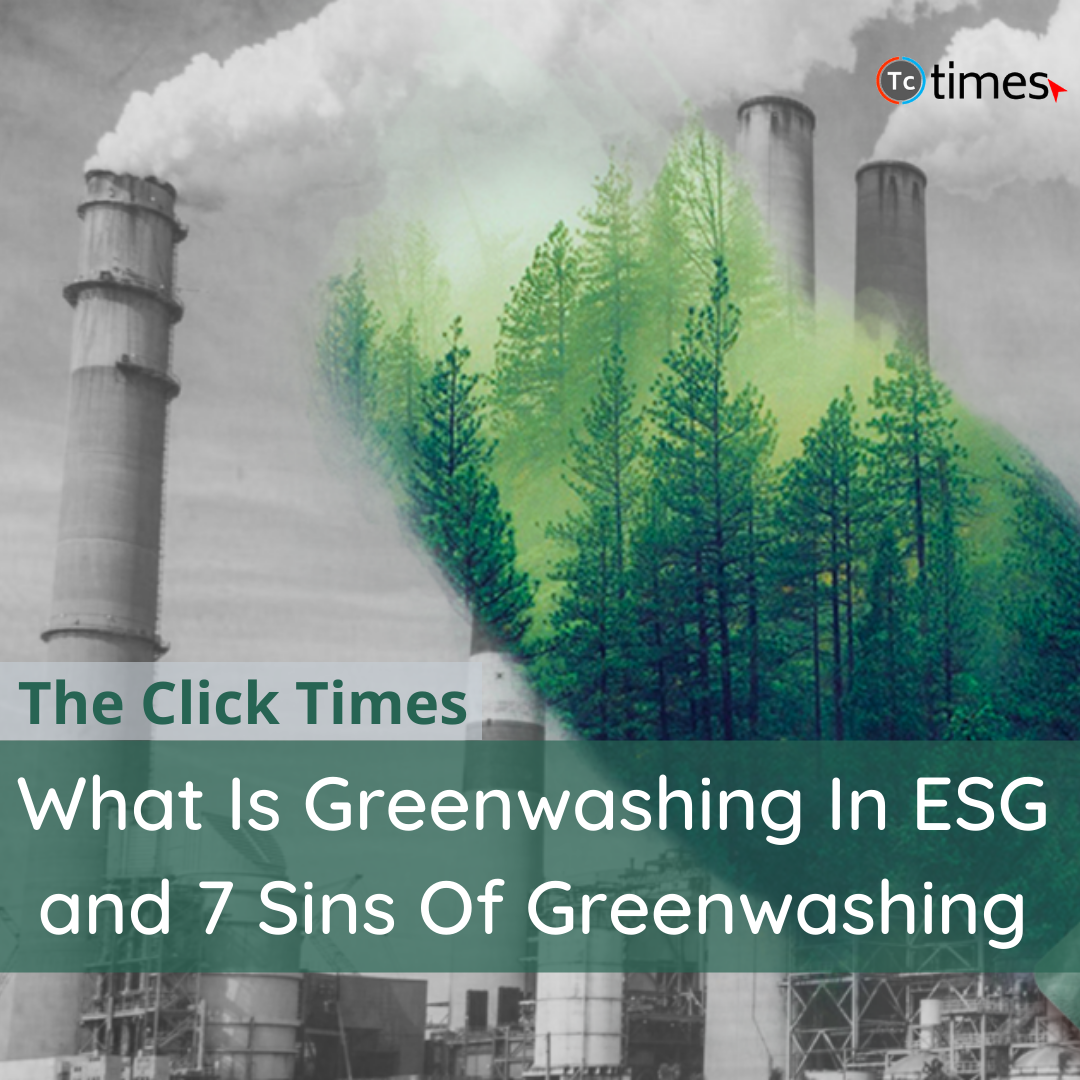The Click Times: The Word “Greenwashing” was invented in 1986 by the NewYork Environmentalist named jay Westervelt. He was Motivated from the hotel industry, at that time they proclaimed their customers that they were using their towels many times for saving water and energy. But he found its opposite that their customers didn’t think about the environment; they was only reduced their cost of towel by resusing it multiple times.Now a days, anyhow, the word Greenwashing has a very wide meaning.
What is GreenWashing?
Greenwashing is a marketing strategy it’s only purpose is to generating an illusion of that they are genuinely ecological responsible.
Green instructions do not mean that the company or business always acts in an environmentally responsible manner.For this reason, NGOs often use the concept of greenwashing to accuse companies that they raise environmental concerns while their activities and practices justify otherwise.What is the meaning of greenwashing, what are the main examples of greenwashing and how to recognise greenwashing practices?
Greenwashing is planned “to make people trust that your company or business is doing immensely to protect the environment than it really is.”
Also read net zero emissions target
What is ESG (Environmental, Social, and Governance)?

ESG refers for Environmental, Social and Governance. ESG become firstly used as a configuration with the aid of using traders to control the sustainability chance in their investments. Some studies has proven that corporations with higher ESG scores look like much less volatile and greater strong financially. In particular, they have a tendency to carry out higher at some point of intervals of financial downturn.
Within each ESG section, there are a number of specific associated concerns, discussed below, that may or may not be important in a particular situation, depending on the particular investment being corrected.For example,in the environmental section, there are firms such as pollution or waste that a company generates and factors related to climate change.
Socially Responsible, or ESG, investing can also be referred to as Sustainable Investing, Impact Investing and Mission Investing. ESG investors tend to be more activist investors,attending shareholder meetings and actively working to command company policies and practices.
The Seven Sins of Greenwashing:
Researchers at TerraChoice, In 2008 and 2009, they went to Big-Box
dealers in the US, UK, Australia and Canada.They noted that products that was making an environmental claim.
In the US and Canada alone, 2,218 products were making 4,999 green claims. Of the 2,218 products that made the claims,over 98% devoted as a minimum one in all what TerraChoice Environmental Marketing mentioned as “The Seven Sins of Greenwashing.” In different words, 98% of the goods have been responsible of greenwashing.
According to TerraChoice,the seven sins of greenwashing, are given below:
1. Sin of the Hidden Trade-Off:
Environmental issues enhanced at the charge of other likely more disturbing issue. For example, harvesting paper is not unavoidably environmentally friendly since it comes from a sustainably managed forest.
2. Sin of Lack of Proof:
Environmental asserts that are not supported by reliable proof or third-party credentials. For example, products that asserts a specified percentage of the product comes from consumer-reused content without giving right data or details.
3. The Sin of Vagueness:
Environmental claims that lack detail and are considered meaningless. For example, the term “all natural” is not necessarily “green”: mercury, uranium etc, to name a few, occur naturally.
4. Sin of Love for False Labels:
Creating fake certifications or labels to cheat consumers respectively. For example, generating a false certification to hustle consumers convinced that the product has gone through a allowable green rating process
5. Sin of Improperness:
Emphasizing irrelevant environmental issues, for example saying a phone is “CFC-free” , although CFCs already exist are prohibited by law.
6. Sin of the Lesser of Two Evils:
Environmental claims on goods that have no environmental boons in the first place. For example, say that cigarettes are biological.
7. The Sin of Lying:
Environmental claims that are obviously false. For example, suppose a diesel car releases zero CO2 into the environment.
Follow The Click Times on Twitter.
Tags:
#what is greenwashing in esg #7 sins of greenwashing

